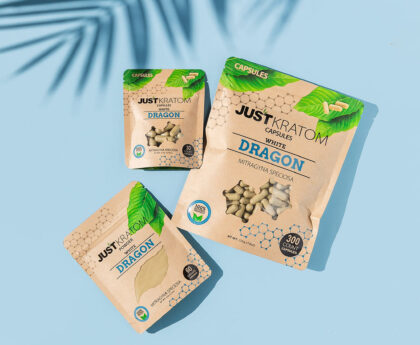Introduction
Muscular dystrophy is a group of genetic disorders characterized by progressive muscle weakness and deterioration. It is caused by mutations in specific genes that affect the production of proteins essential for maintaining muscle structure and function. While there is currently no cure for muscular dystrophy, researchers and patients alike are exploring alternative treatments to manage its symptoms and improve the quality of life. One such alternative gaining attention is CBD oil, derived from the cannabis plant. CBD, or cannabidiol, is a non-psychoactive compound known for its potential therapeutic properties. In this comprehensive guide, we will delve into the relationship between CBD oil and muscular dystrophy, exploring the current scientific understanding, potential benefits, risks, and considerations.
Understanding Muscular Dystrophy
Muscular dystrophy encompasses a group of over 30 different genetic disorders, each affecting the muscles in unique ways. The primary symptom of muscular dystrophy is progressive muscle weakness, which often starts in early childhood. Over time, muscle tissue is replaced by fat and fibrous tissue, leading to mobility challenges, loss of function, and reduced quality of life. Some common forms of muscular dystrophy include Duchenne muscular dystrophy, Becker muscular dystrophy, and myotonic dystrophy.
The Endocannabinoid System and CBD
The human body has an endocannabinoid system (ECS), a complex network of receptors, endocannabinoids (naturally produced cannabinoids), and enzymes. The ECS plays a crucial role in regulating various physiological processes, including pain sensation, inflammation, immune response, and muscle function. CBD interacts with the ECS by indirectly affecting cannabinoid receptors, particularly CB1 and CB2 receptors, which are distributed throughout the body.
CBD and Muscular DystrophyPotential Benefits
- Pain Management: Muscle pain and discomfort are common symptoms of muscular dystrophy. CBD’s potential analgesic properties could provide relief by interacting with pain receptors in the ECS.
- Inflammation Reduction: Inflammation contributes to the progression of muscular dystrophy. CBD’s anti-inflammatory effects may help mitigate inflammation, potentially slowing down muscle degeneration.
- Muscle Relaxation: CBD’s muscle relaxant properties could aid in relieving muscle spasms and stiffness experienced by individuals with muscular dystrophy.
- Neuroprotection: Some forms of muscular dystrophy have neurological components. CBD’s neuroprotective qualities might help preserve nerve cells and maintain neurological function.
- Improved Sleep Quality: Sleep disturbances are common in muscular dystrophy patients. CBD’s potential to enhance sleep quality might provide much-needed rest to individuals with the disorder.
Scientific Research and Clinical Studies
While the potential benefits of CBD for muscular dystrophy are intriguing, it’s important to note that the scientific research in this area is still limited. Most of the existing research is preclinical, involving animal models or cell cultures. Clinical trials involving human participants are scarce, and larger, well-designed studies are needed to establish CBD’s effectiveness and safety for muscular dystrophy patients.
Considerations and Risks
- Regulation and Quality: The lack of regulation in the CBD market means that the quality and potency of CBD products can vary widely. It’s crucial to choose products from reputable manufacturers and ensure they undergo third-party testing.
- Drug Interactions: CBD can interact with certain medications, potentially affecting their efficacy or causing adverse effects. Consultation with a healthcare professional is essential before incorporating CBD into your treatment plan.
- Individual Variability: People’s responses to CBD can vary based on factors such as genetics, metabolism, and overall health. What works for one individual may not work the same way for another.
- Side Effects: While CBD is generally considered safe, some individuals might experience side effects such as dry mouth, dizziness, changes in appetite, or diarrhea. These effects are usually mild and temporary.
How to Use CBD Oil
- If you decide to explore CBD oil as a potential supplement for muscular dystrophy, it’s essential to approach its use carefully
- Consultation: Always consult with a medical professional before incorporating CBD into your treatment plan, especially if you are taking other medications.
- Dosage: CBD dosage can vary widely. Start with a low dose and gradually increase until you find the optimal dosage that provides relief without adverse effects.
- Delivery Methods: CBD oil can be taken sublingually (under the tongue), ingested in capsules, or applied topically. Different methods may have varying onset times and durations of effects.
- Monitoring: Keep track of your symptoms and how you respond to CBD. Adjust the dosage or delivery method if needed.
Conclusion
While the potential therapeutic benefits of CBD oil for muscular dystrophy are promising, it’s crucial to approach its use with caution and under the guidance of a healthcare professional. The limited scientific research and clinical evidence available mean that CBD’s role in managing muscular dystrophy symptoms is not fully understood. As research continues to unfold, individuals with muscular dystrophy and their caregivers should stay informed about the latest findings and consult with medical experts to make informed decisions about integrating CBD oil into their treatment regimen.
- Traptox Aka Trapezius Botox Treatment Near Seale, Surrey - January 4, 2025
- Skin Pen Microneedling Near Richmond, Surrey - January 3, 2025
- Mummification Fetish: Full-Body Restraint And Sensory Exploration - January 2, 2025





